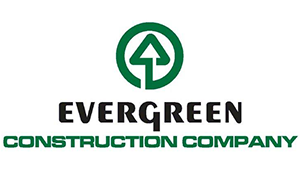
This morning, Rep. Mitchell Setzer filed H.B. 885 – the Community Opportunity Tax Credit (Opportunity Credit). The Opportunity Credit is a proven economic development strategy used by several other states that provides a 33% credit against state tax liabilities to North Carolina businesses, financial institutions and individuals for each dollar invested in or donated to a state-certified Community Based Development Organizations (“CBDOs”) to create jobs and develop affordable housing in underserved communities. The Opportunity Credit is a result of the leadership of the NC Community Development Initiative, Initiative Capital and the NC Housing Coalition who seek to foster thriving communities with opportunity for all.
While North Carolina has experienced strong economic grown since 2010, the growth has not been spread evenly across the state. Pockets of poverty persist in both urban and rural areas and the North Carolinians living in these communities are falling behind.
“By partnering with the private sector to leverage capital that will stimulate economic activity, the Opportunity Credit would give a boost to North Carolina communities who have been left behind” says Tara Kenchen, CEO of the North Carolina Community Development Initiative.
The Community Opportunity Tax Credit will leverage at least $15 million in private sector capital for investment in affordable housing and community development for $5 million of state investment.
Losing opportunity to South Carolina
The Opportunity Credit is modeled on South Carolina’s highly effective community development tax credit. That credit was enacted through the South Carolina Community Development Act of 2000, and it has proved a boon to that state’s economy. In 2014 alone, nine state certified CBDOs in South Carolina used that state’s program to raise more than $2 million of private investment by leveraging just $700,000 in state credits. This capital was invested in a variety of projects that resulted in nearly $9 million in economic impact, including:
- The creation or retention of 173 jobs;
- The creation, rehabilitation or preservation of nearly 300 units of affordable housing; and
- The provision of essential services, including financial literacy training, homebuyer education, workforce development, youth leadership, post-secondary education and VITA tax services, to more than 750 households across the state.
The program has been so successful that advocates are seeking an increase from $1 million to $5 million this year.
North Carolina communities are missing out on investments that go instead to our neighbor to the south. The Opportunity Credit will bring this capital back to North Carolina communities to stimulate our economy, create jobs, and expand diverse affordable housing options all in an extraordinarily cost effective manner.
For more information about the North Carolina Community Opportunity Credit, please contact:
Samuel Gunter
Director of Policy and Advocacy, NC Housing Coalition
sgunter@nchousing.org
919.827.4496








